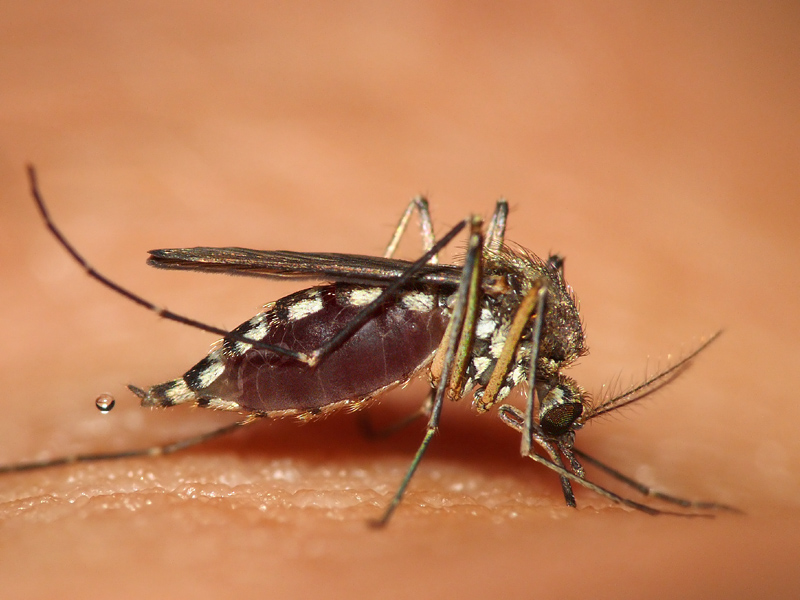There's good news today from the New England Journal of Medicine - the world's most clinically advanced malaria vaccine has proved to have good protection for babies and young children. These early stage clinical trial results pave the way for large-scale clinical trials across Africa - and about time, because malaria kills a million people every year, most of them babies and young children in Africa.
 The vaccine has the catchy name of RTS,S/AS, and its development has been co-ordinated by a malaria vaccine initiative set up with funding from the Bill and Melinda Gates Foundation. The vaccine is designed to target the parasite that causes the most severe kind of malaria, called Plasmodium falciparum. It was tested in two different trials, in Kenya and Tanzania, formulated in two slightly different ways.
The vaccine has the catchy name of RTS,S/AS, and its development has been co-ordinated by a malaria vaccine initiative set up with funding from the Bill and Melinda Gates Foundation. The vaccine is designed to target the parasite that causes the most severe kind of malaria, called Plasmodium falciparum. It was tested in two different trials, in Kenya and Tanzania, formulated in two slightly different ways.
The first trial, carried out in Tanzania, was deigned to test the safety of the vaccine and it involved 340 babies. They were split into two groups and either given the malaria vaccine or a control hepatitis vaccine. The second study, in Kenya, was asking if the vaccine could reduce the risk of malaria, and it involved nearly 900 children. They were either given the malaria vaccine, or a rabies jab as a control.
In the Tanzanian study, the team found that 18% of the babies had side effects of the vaccine, compared with around a quarter of the babies who got the hepatitis vaccine, so that's good news. The malaria vaccine also didn't interfere with other vaccines that the children were given. And pleasingly, around 99% of the children who were given the malaria vaccine had an immune response, and it looked like the vaccine cut malaria infections by about 65%.
And in the Kenyan study, it seems that the vaccine cut malaria infections by 56%, and it had fewer side effects than the control rabies jab.
So is a vaccine for malaria around the corner? The results are certainly promising, but there's still more work to be done. For a start, there needs to be larger scale trials. And the vaccine itself isn't a cure-all. For a start, it only protects against one strain of Plasmodium parasite, there's three more important types, and was tested in areas with fairly low levels of malaria infections. And it doesn't provide 100% protection from malaria infection. But if further trials are positive, then it could certainly be an important step forward in reducing malaria.










Comments
Add a comment